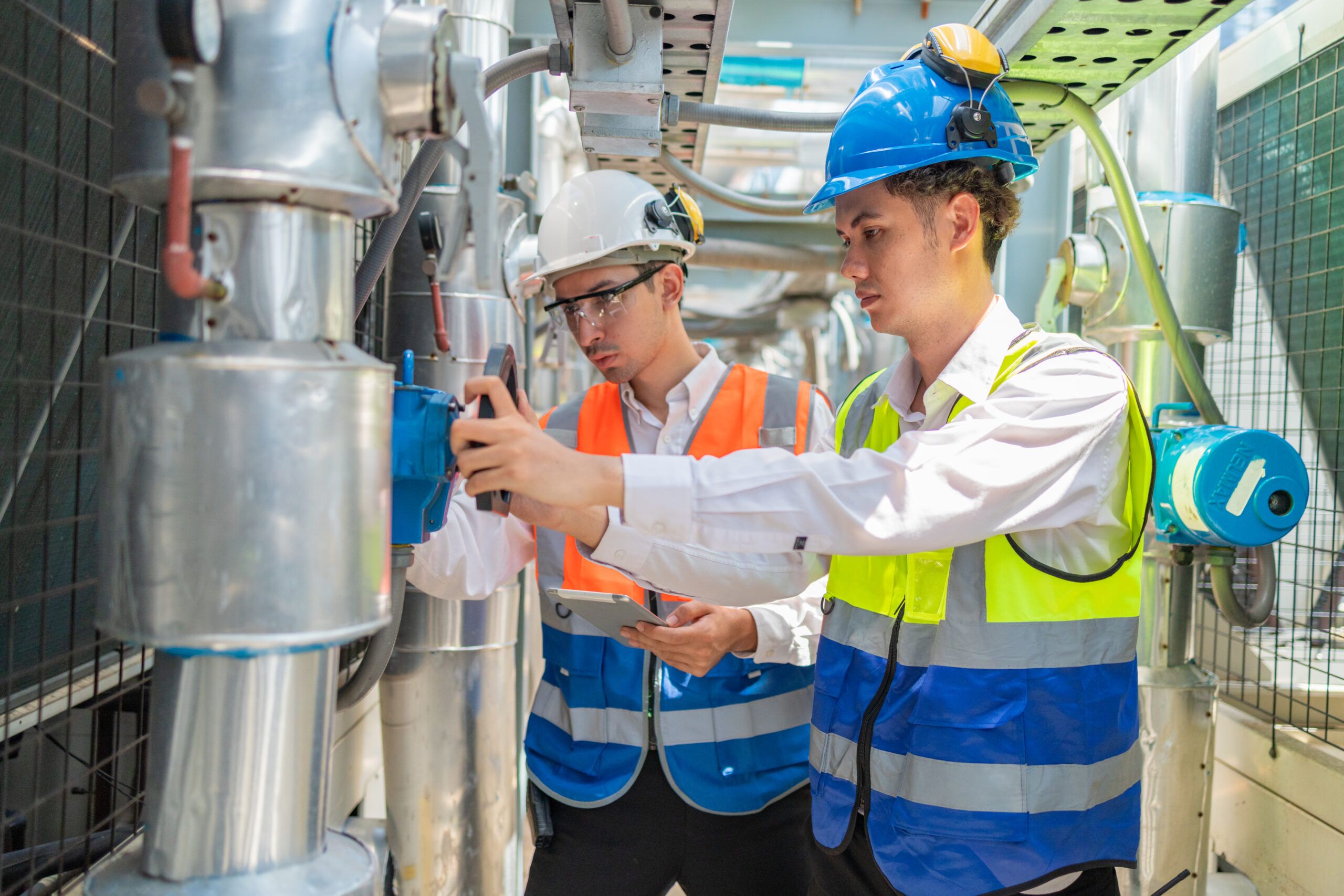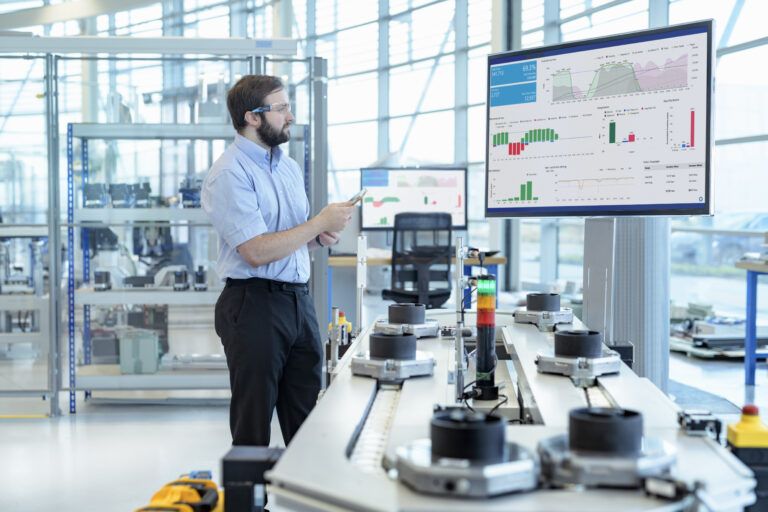Are you intrigued by the world of instrumentation and control engineering? This dynamic field is all about crafting, fine-tuning, and overseeing systems that are crucial for measuring and controlling industrial processes. But what makes a successful instrumentation and control engineer?
It’s not just about having a knack for technology; it involves a blend of technical know-how, analytical thinking, project management, and stellar communication skills. Whether you’re deciphering the complexities of control systems, mastering software tools, or staying up-to-date with the latest industry standards, this career path requires a commitment to continuous learning and adaptability. Join us as we dive into the essential skills that pave the way for excellence in instrumentation and control engineering, from understanding the fundamentals of PID controllers and PLCs to navigating the nuances of team collaboration and safety protocols.
Get ready to explore how these skills not only fuel innovation but also ensure efficiency, safety, and compliance in the ever-evolving landscape of engineering.
What are the Essential Skills for Instrumentation and Control Engineer Careers?
Instrumentation and control engineers are at the forefront of designing, developing, and maintaining systems that measure and control engineering processes. The career demands a unique blend of skills, ranging from technical and analytical abilities to project management and effective communication. Here’s a closer look at the essential skills required for success in this field: Technical Proficiency: The cornerstone of an instrumentation and control engineer’s skill set is a comprehensive understanding of control theory and measurement principles.
This includes expertise in sensors and actuators, signal processing, and data acquisition techniques. Proficiency in design and simulation tools, such as CAD software and PLC programming, is crucial for developing and testing control systems. Analytical Skills: Engineers in this field must possess strong analytical skills to effectively tackle complex problems.
This involves analysing system performance, identifying issues, and formulating solutions. A robust foundation in mathematics and physics is vital for effectively applying control theory and principles. Project Management: Leading the implementation of control systems often falls to instrumentation and control engineers, making project management skills essential.
This includes planning, budgeting, and scheduling projects to ensure they are completed on time and within budget. Skills in risk management and adaptability to challenges are also key. Communication and Teamwork: Successful instrumentation and control engineering projects typically require collaboration with a diverse team of engineers, technicians, and stakeholders.
Thus, clear and effective communication is crucial. Engineers must be adept at conveying technical information and working well within multidisciplinary teams. Continuous Learning: With the constant evolution of technology in this field, a commitment to lifelong learning is imperative.
Engineers should engage in continual professional development through additional certifications, workshops, and staying informed on industry trends via professional associations and publications. In essence, a career in instrumentation and control engineering requires a combination of technical knowledge, analytical skills, project management capabilities, interpersonal skills, and a commitment to ongoing learning. These skills enable engineers to navigate the complexities of modern control systems and technologies effectively, positioning them for success in diverse engineering career paths across multiple industries.
Understanding of Control Systems
Control systems are pivotal in the automation and management of industrial processes, ensuring operational efficiency and safety. A profound understanding of control systems encompasses mastery over several key components.
Understanding these components is essential for the design and implementation of control system design principles, which guide the creation of systems capable of adapting to changing operational conditions while maintaining peak performance. Furthermore, real-time control system optimisation is vital, ensuring that processes can swiftly adjust to variations, thereby reducing downtime and boosting productivity. This comprehensive knowledge enables engineers to develop, implement, and maintain advanced control systems that fulfil the complex requirements of contemporary industrial environments.
PID, PLC, SCADA Fundamentals
PID controllers are pivotal in process control, dynamically adjusting system operations based on error values to ensure precision and stability. Programmable Logic Controllers (PLC) act as the industrial automation backbone, monitoring system inputs and managing outputs according to customised programming. SCADA systems offer supervisory oversight, facilitating real-time data acquisition and control over complex processes.
Mastery of these fundamentals is essential for the effective operation and automation of control systems.
Control System Design Principles
The design of control systems is governed by key principles aimed at enhancing functionality and reliability. Principles such as modularity, for simplified maintenance and scalability, and robustness, to endure variable operational conditions, are foundational. Efficiency in design not only ensures optimal performance with minimal resource expenditure but also prioritises safety and compliance with industry standards, protecting against system failures and ensuring regulatory adherence.
Real-time Control System Optimisation
Real-time control system optimisation is critical for the dynamic adjustment of processes, significantly improving productivity while reducing downtime. This requires the continuous monitoring of system performance, employing predictive analytics to anticipate and mitigate potential issues before they arise. By implementing real-time adjustments, systems can swiftly adapt to changing conditions, ensuring sustained process integrity and operational efficiency.
Proficiency in Software Tools
In the specialised field of instrumentation and control engineering, proficiency in software tools is crucial for designing, analysing, and optimising control systems. Mastery over these software tools equips engineers with the capability to efficiently develop and implement advanced control systems, adeptly meeting the demands of contemporary industrial operations.
MATLAB for Data Analysis and Algorithm Development
MATLAB stands as a cornerstone for data analysis and algorithm development, pivotal for instrumentation and control engineers. It empowers the modelling and simulation of complex systems, offering a comprehensive platform for testing and refining control strategies. With MATLAB’s extensive library and intuitive interface, engineers can effortlessly tackle complex mathematical challenges and craft algorithms that elevate system efficiency and performance.
LabVIEW for System Design and Automation
LabVIEW revolutionises system design and automation with its graphical programming environment. Tailored for engineers, it simplifies the process of prototyping, testing, and deploying control systems. LabVIEW excels in the seamless integration of hardware and software components, enhancing real-time data acquisition, signal processing, and control of actuators.
This tool significantly accelerates the development lifecycle, from conception to execution, ensuring the delivery of efficient and reliable systems.
AutoCAD for Creating and Modifying Engineering Drawings
AutoCAD is indispensable for creating and modifying engineering drawings, offering unparalleled precision in visualising control systems. Engineers rely on AutoCAD to produce detailed layouts, schematics, and specifications, ensuring a perfect harmony between design concepts and physical implementations. Its robust features facilitate meticulous planning and adaptation of system components, fostering clear design communication and collaborative efficiency among project teams.
Knowledge of Sensors and Signal Processing
A profound knowledge of sensors and signal processing is crucial for instrumentation and control engineers tasked with measuring and controlling various parameters within complex industrial systems. This expertise is fundamental in designing and implementing sophisticated measurement and control solutions that optimise the performance and efficiency of industrial processes and systems.
Temperature Sensors: Thermocouples, RTDs
Temperature sensors are critical for monitoring and managing heat in a variety of industrial settings. Thermocouples stand out for their broad temperature range and rapid response, producing a voltage in direct response to temperature shifts. Resistance Temperature Detectors (RTDs) are prized for their precision and stability, as they function by measuring the change in resistance of a conductor as it experiences temperature variations.
Pressure Sensors: Piezoelectric, Strain Gauge
Pressure sensors are indispensable in maintaining the safety and operational efficiency of industrial processes. Piezoelectric sensors excel in detecting pressure variations through the electrical charge that accumulates in specific materials under mechanical stress. Conversely, strain gauge sensors quantify pressure, force, or stress by measuring the deformation of an object, providing vital data for process control.
Flow Sensors: Ultrasonic, Electromagnetic
Flow sensors are crucial for accurately measuring fluid movement in numerous applications. Ultrasonic flow sensors utilise sound waves to ascertain fluid velocity, offering the advantage of non-invasive measurement. Electromagnetic flow sensors, best suited for conductive liquids, determine flow rate by measuring the voltage generated as fluid flows through a magnetic field.
Signal Conditioning and Noise Reduction Techniques
Signal conditioning and noise reduction techniques are essential for ensuring the accuracy and reliability of sensor data. Signal conditioning involves transforming sensor outputs into a format that instruments or controllers can easily and accurately interpret. Noise reduction techniques, including filtering and shielding, are crucial for eliminating interference that could distort the signal, thereby preserving the integrity of data essential for informed process control and decision-making.
Ability to Design and Interpret Circuit Diagrams
The ability to design and interpret circuit diagrams stands as a cornerstone skill for instrumentation and control engineers. It empowers them to effectively communicate complex ideas and dissect the intricacies of electronic systems. Designing circuit diagrams involves crafting a visual representation of an electrical system, showcasing the connections and components in a manner that is both clear and adheres to standardised conventions.
This capability is essential for the planning, construction, and troubleshooting of circuits. Similarly, the skill to interpret these diagrams is equally critical. It enables engineers to grasp and evaluate the workings of existing systems, paving the way for enhancements, repairs, and optimisations.
Proficiency in both designing and interpreting circuit diagrams ensures engineers can seamlessly translate theoretical concepts into tangible applications, driving the creation of reliable and efficient control systems.
Reading and Creating Schematic Diagrams
Reading and creating schematic diagrams is essential for the effective communication and comprehension of electrical designs. This skill enables engineers to accurately visualise the arrangement and connections of components within a circuit, which is crucial for both constructing and analysing electrical systems. Proficiency in this area ensures engineers can not only convey their innovative ideas through clear diagrams but also adeptly interpret the designs of others, facilitating seamless collaboration in the engineering process.
Understanding of Electronic Components and Symbols
A deep understanding of electronic components and symbols is foundational for any engineer working with circuit designs. Knowledge of the various components, such as resistors, capacitors, and transistors, along with their corresponding symbols, is vital for reading and creating precise schematic diagrams. This expertise allows engineers to quickly identify the roles of different parts within a circuit, significantly enhancing their ability to troubleshoot issues and refine system functionality.
Circuit Simulation and Testing Methods
Circuit simulation and testing methods play a crucial role in the development and validation of electrical designs. Simulation tools enable engineers to model and assess the behaviour of circuits under a wide range of conditions, without the immediate need to build physical prototypes. Physical and virtual testing techniques offer invaluable insights into a circuit’s performance, identifying potential problems and opportunities for optimisation.
Employing these methods ensures the creation of efficient and reliable electrical systems, reducing errors and maximising performance before final production.
Strong Analytical and Problem-Solving Skills
Strong analytical and problem-solving skills are paramount for instrumentation and control engineers, equipping them to tackle intricate challenges and enhance system operations. These competencies necessitate a systematic approach to dissecting problems, scrutinising data, and employing logical reasoning to devise efficient solutions. Engineers adept in these areas can effectively perform systematic troubleshooting, execute root cause analyses, and make strategic decisions amidst uncertainty.
Proficiency in analytical thinking and problem-solving not only bolsters the dependability and efficiency of engineering solutions but also fosters innovation and ongoing enhancement in the realm of control systems and operational processes.
Systematic Troubleshooting Techniques
Systematic troubleshooting techniques are essential for quickly identifying and resolving issues within control systems. Employing a step-by-step approach enables engineers to methodically diagnose problems, starting with the simplest and most probable causes before progressing to more complex scenarios. Understanding operational complexities encountered across different industries helps engineers anticipate potential issues and develop more targeted troubleshooting strategies. This structured methodology ensures thorough consideration of all possible factors, streamlining the troubleshooting process and swiftly restoring system operations.
Root Cause Analysis Methods
Root cause analysis methods play a pivotal role in uncovering the fundamental reasons behind system failures or performance degradation. By concentrating efforts on isolating the primary cause rather than merely addressing symptoms, engineers can devise long-term solutions that prevent future occurrences. Utilising tools such as the Five Whys, Fishbone Diagrams, and Failure Mode and Effects Analysis (FMEA) enables a systematic examination and identification of root causes, fostering more resilient and reliable control systems.
Decision-Making Under Uncertainty
Decision-making under uncertainty is a critical competency for engineers, necessitating the ability to formulate sound decisions amidst incomplete information. This skill involves evaluating the existing data, weighing potential risks, and contemplating the implications of various decisions. Employing strategies like probabilistic modelling, sensitivity analysis, and scenario planning helps engineers effectively manage uncertainties, crafting strategies that minimise risks while maximising opportunities for system improvement and innovation.
Effective Communication and Teamwork
Effective communication and teamwork are vital components in the realm of instrumentation and control engineering. Complex projects necessitate the collaboration of diverse expertise, making clear and concise communication paramount. It ensures that technical details are accurately shared, fostering a shared understanding among team members and stakeholders.
This capability is essential not only for the seamless execution of projects but also for the meticulous documentation and reporting of system designs and alterations. Collaboration, meanwhile, involves working cohesively with colleagues across various disciplines, capitalising on each individual’s expertise to innovate and address challenges more effectively. The synergy fostered through effective communication and teamwork markedly improves project outcomes, propelling innovation and guaranteeing the reliability and performance of control systems.
Technical Report Writing and Documentation
Technical report writing and documentation are essential for conveying complex information and insights in a clear and concise manner. This skill is crucial for ensuring that technical specifics are comprehensible to a broad audience, including both technical peers and non-specialists. Effective documentation acts as a cornerstone throughout a project’s lifecycle, chronicling the journey from conception to execution and beyond, and serves as a critical repository of decisions, designs, and operational methodologies.
Cross-Disciplinary Collaboration Strategies
Cross-disciplinary collaboration strategies play a vital role in leveraging the collective wisdom of diverse teams. Successful collaboration hinges on the ability to appreciate and integrate the viewpoints and expertise of various domains, ranging from engineering to project management. Adopting strategies that promote shared objectives, utilise efficient communication channels, and foster an inclusive culture is key to stimulating knowledge exchange and spurring innovation, ultimately leading to more holistic and durable solutions.
Presentation Skills for Technical Audiences
Presentation skills for technical audiences are essential for succinctly and effectively conveying intricate concepts and technical data. Engineers and technical professionals must excel in presenting their findings, proposals, and updates in a manner that captivates and informs peers, managers, and stakeholders. Proficiency in these skills ensures that the significance and ramifications of the presented data are fully understood, enabling informed decision-making and bolstering project endorsement.
Familiarity with Industry Standards and Safety Protocols
Familiarity with industry standards and safety protocols is essential for ensuring that engineering practices and systems conform to the highest levels of safety and efficiency.
Engineers proficient in these areas are pivotal in steering the engineering sector towards safer, more reliable, and compliant control system implementations.
ISA Standards for Automation and Control
ISA standards for automation and control play a crucial role in setting the bar for quality and consistency in the engineering sector. These standards offer a comprehensive set of guidelines for the design, execution, and oversight of automated systems, ensuring they are effective, reliable, and secure. By aligning with ISA standards, engineers are equipped to achieve superior quality benchmarks, paving the way for innovation and excellence in system design and implementation.
OSHA Regulations for Workplace Safety
OSHA regulations for workplace safety are essential in safeguarding employees from potential hazards within the engineering environment. These regulations outline the employer’s obligations to maintain a safe workplace, encompassing the proper operation of machinery, the handling of hazardous materials, and emergency response protocols. Adherence to OSHA guidelines not only reduces the likelihood of workplace incidents but also fosters a culture of safety, accountability, and employee well-being.
Compliance with Environmental Regulations
Compliance with environmental regulations is crucial for ensuring that engineering activities and projects are conducted in an environmentally friendly manner. This compliance involves adhering to standards and laws regarding pollution prevention, waste management, and the conservation of natural resources. Engineers committed to following these regulations play a vital role in promoting sustainable development practices, underscoring their dedication to environmental stewardship and the well-being of future generations.
Continuous Learning and Adaptability
Continuous learning and adaptability are crucial attributes for professionals in the dynamic realm of instrumentation and control engineering. The field is characterised by rapid technological progress, requiring engineers to commit to lifelong learning and remain agile in adapting to new tools, technologies, and methodologies. Embracing continuous learning positions engineers at the cutting edge of innovation, ensuring their skills and knowledge stay relevant in a competitive landscape.
Adaptability empowers them to effectively respond to industry shifts, from evolving regulatory standards to the emergence of transformative technologies like the Internet of Things (IoT) and machine learning. This dedication to professional growth not only advances individual careers but also drives the broader progress and resilience of the engineering discipline.
Keeping Up with Technological Advancements
Keeping up with technological advancements is critical for engineers in the field of instrumentation and control. It necessitates a proactive approach to learning about the latest developments, from innovative software tools to breakthroughs in automation and control technologies. Engaging in professional development activities, such as attending workshops, participating in conferences, and enrolling in online courses, is imperative for engineers aiming to integrate the newest insights and innovations into their projects.
Skills Development in Emerging Areas like IoT and Machine Learning
Skills development in emerging areas like IoT and machine learning represents a pivotal frontier for engineers. These cutting-edge technologies hold the promise of transforming control systems and operational processes. Engineers must, therefore, cultivate expertise in these domains to design control systems that are not only more intelligent and efficient but also capable of predictive functionalities, thereby enhancing overall system performance.
Adaptation to New Tools and Methodologies
Adaptation to new tools and methodologies stands as a cornerstone of engineering resilience and innovation. This adaptation goes beyond merely learning to use new software or hardware; it encompasses embracing novel problem-solving strategies and system design approaches. Such adaptability ensures that engineers can navigate challenges and capitalise on the potential of new technologies to refine and advance system design, implementation, and maintenance practices.
Building Your Path to I&C Engineering Excellence
Success in instrumentation and control engineering demands a comprehensive skill set spanning technical mastery of control systems and software tools like MATLAB and LabVIEW, to analytical problem-solving and effective team collaboration. Engineers must stay current with industry standards, safety protocols, and emerging technologies, such as IoT and machine learning, to remain competitive in this rapidly evolving field. The combination of strong foundational knowledge, continuous learning, and adaptability positions professionals to design and optimise the complex control systems that drive modern industrial operations.
Vista Projects understands the critical importance of skilled I&C professionals in delivering successful engineering projects across our 13 industry sectors. Our integrated approach to multi-disciplinary engineering creates opportunities for I&C engineers to collaborate with diverse teams while developing specialized control system solutions that reduce total installation costs and maximise operational efficiency.
Ready to advance your I&C engineering career or find the right talent for your next project? Connect with Vista Projects today to explore how our comprehensive engineering services can support your professional growth and project success.









